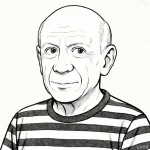“Switzerland is a small, steep country, much more up and down than sideways, and is all stuck over with large brown hotels built on the cuckoo clock style of architecture.”

- July 21, 1899 – July 2, 1961
- American
- Novelist, poet, journalist
table of contents
Quote
“Switzerland is a small, steep country, much more up and down than sideways, and is all stuck over with large brown hotels built on the cuckoo clock style of architecture.”
Explanation
In this quote, Hemingway offers a humorous and somewhat critical description of Switzerland, using its distinctive geography and architecture as a metaphor for its physical and cultural landscape. The phrase “much more up and down than sideways” references the steepness of the Swiss Alps, suggesting that the country’s geography is defined more by verticality—the towering mountains—than by the horizontal, flat expanses of land. The “large brown hotels” built in the “cuckoo clock style” add to this image of a country that, in Hemingway’s view, has an overly quaint or touristic aesthetic, perhaps a bit kitschy and overly conventional. The reference to cuckoo clocks evokes a traditional, somewhat dated notion of Swiss culture, emphasizing a sense of nostalgia and predictability rather than modern innovation.
Hemingway, who traveled extensively throughout Europe, often held critical views of places that catered to tourists or seemed overly reliant on their historical images, especially when they lacked the authenticity or grit he admired. His works, like A Moveable Feast, reflect both admiration and skepticism about the cultural landscapes he encountered. His description of Switzerland here may reflect his discomfort with places that seemed overly packaged or staged, where the environment and the architecture appeared to be designed for tourists rather than truly reflecting the life and soul of the place. Hemingway’s own preference was for places and people that seemed raw and unrefined, often finding inspiration in the spontaneity and genuine complexity of the Spanish Civil War, or the ruggedness of France and Italy during the interwar years.
In modern terms, this quote can reflect the way tourist destinations and even modern cities can sometimes become overly commodified, losing some of their original character in favor of a predicable or stylized aesthetic. In a world where places often market themselves with an emphasis on their most charming or traditional aspects, Hemingway’s description of Switzerland invites reflection on the tension between authenticity and commercialism. It also serves as a reminder of how overly curated environments, while attractive or picturesque, may lack the complexity and depth of places where life and culture unfold more organically.
Would you like to share your impressions or related stories about this quote in the comments section?



